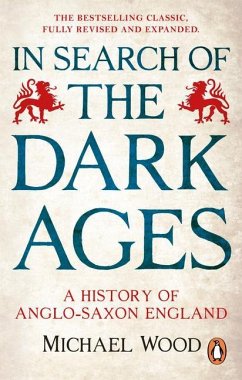
The History of Eastern Roman Empire
From the Fall of Irene to the Accession of Basil I.

PAYBACK Punkte
0 °P sammeln!
In "The History of the Eastern Roman Empire," J. B. Bury masterfully navigates the complexities of Byzantine history, offering a thorough exploration of the political, social, and cultural evolution of the Eastern Roman Empire from its foundation in 330 AD to its ultimate fall in 1453. Bury employs a meticulous narrative style, interweaving meticulous research and engaging prose, making the book not only a historical account but also a literary achievement. The work situates itself within the broader discourse of historiography, challenging misconceptions about the Byzantine period and emphasi...
In "The History of the Eastern Roman Empire," J. B. Bury masterfully navigates the complexities of Byzantine history, offering a thorough exploration of the political, social, and cultural evolution of the Eastern Roman Empire from its foundation in 330 AD to its ultimate fall in 1453. Bury employs a meticulous narrative style, interweaving meticulous research and engaging prose, making the book not only a historical account but also a literary achievement. The work situates itself within the broader discourse of historiography, challenging misconceptions about the Byzantine period and emphasizing its significance as a bridge between the ancient and modern worlds. J. B. Bury, a distinguished historian and classical scholar, was profoundly influenced by his extensive studies in ancient history and languages. His academic background, comprising a rich tapestry of knowledge on classical antiquity and its legacies, positioned him uniquely to delve into the less-explored realms of Byzantine scholarship. Bury's commitment to precision in historical interpretation and his ability to synthesize vast amounts of information are hallmarks of his intellectual pursuit, culminating profoundly in this seminal work. This book is highly recommended for both scholars and enthusiasts of Byzantine history, offering critical insights and rich narrative. Readers seeking to understand the intricate legacy of the Eastern Roman Empire will find Bury's compelling analysis both enlightening and essential for grasping the complexities of a pivotal historical era.













